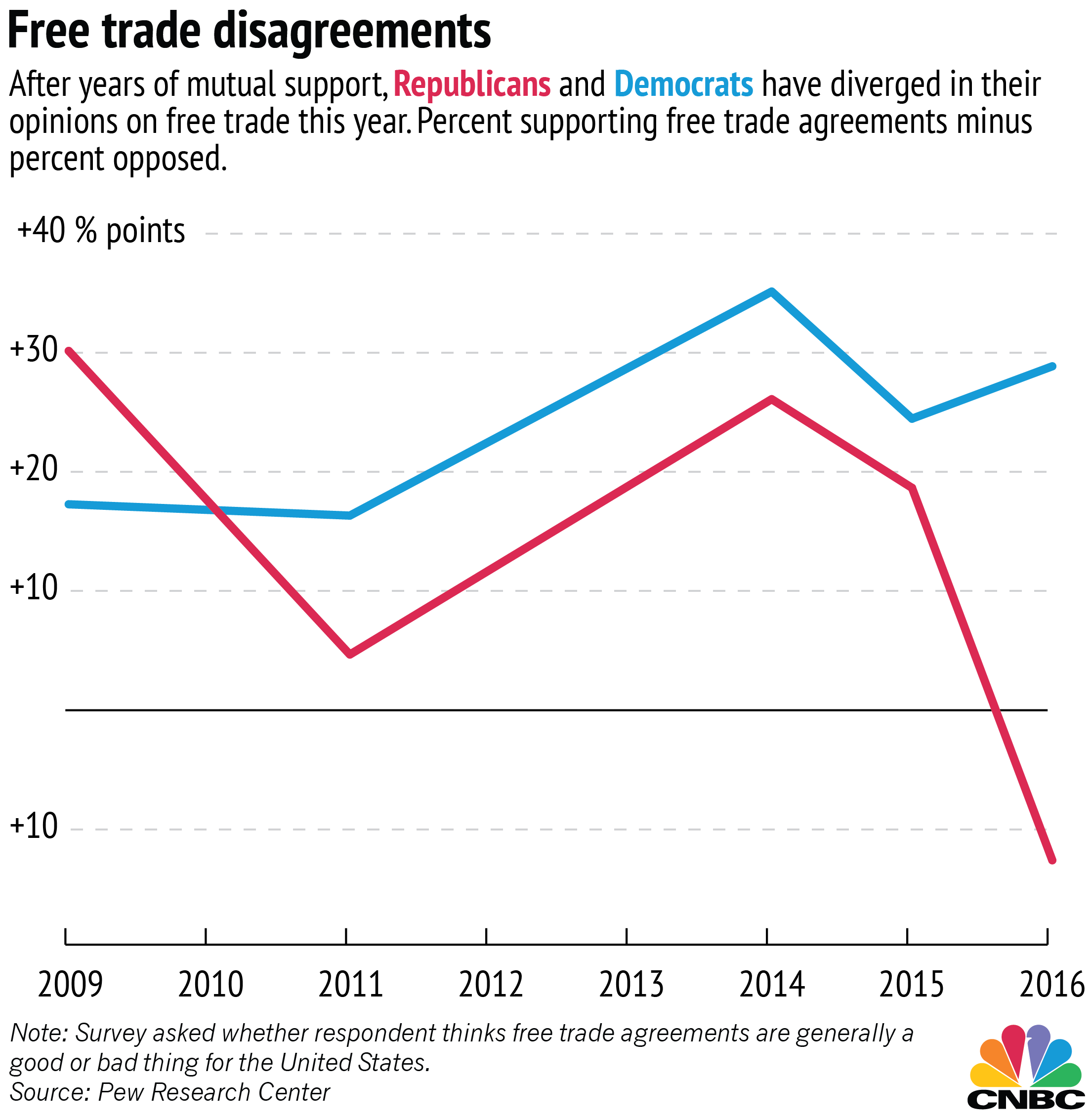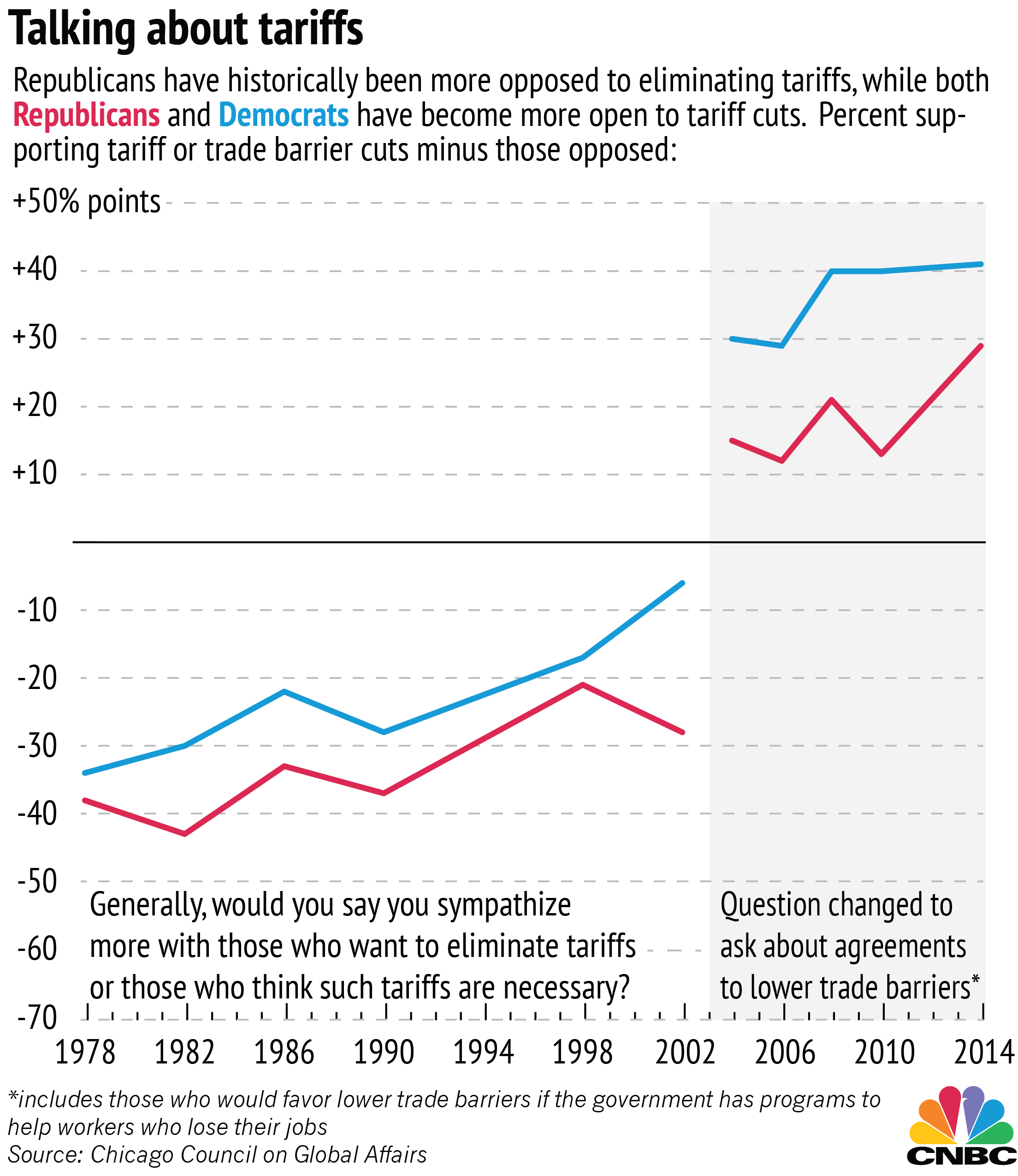Angry anti-trade rhetoric is flying from political podiums on the left and the right this year, but it's not at all clear that Americans broadly agree with their politicians.
Consider some recent polls: 55 percent of voters say free trade is generally a good thing, versus 38 percent against (WSJ/NBC); 51 percent for, 39 percent against (Pew Research Center).
The historical trajectory has generally been toward accepting competition from foreign goods and workers in the name of the stronger economic growth consistently promised by economists.
But Americans of both political parties are inconsistent on trade. At any given time, as much as 10 to 30 percent of respondents have no opinion about open trade, regardless of their party affiliation, and those voters can swing one way or the other in response to politicians.
In March, 52 percent of Republicans told Pew that they thought trade agreements were generally a good thing for the country, while 39 percent said they were bad. That's almost a complete reversal from the same poll in May 2015. Democrats, meanwhile, moved in the opposite direction over the same time period.






